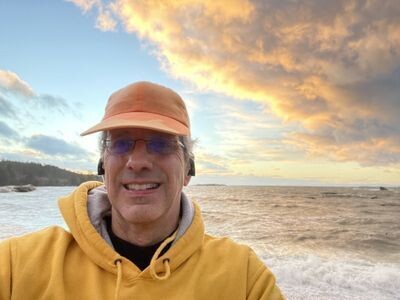2/14/1960 – 2/6/2023
Jared Randall (Randy) Curtis died at home with his wife and daughter by his side in the community of North Beach in Seattle, Washington. He passed away just a few days from his 63rd birthday, after a two-year fight against the crippling and incurable disease known as Amyotrophic lateral sclerosis (ALS). Born in Ann Arbor, MI, he was the son of Jared Ralph Curtis and the late Ida May (Louks) Curtis. He leaves his wife Amy Shaff Hamblin, his daughter Alice Lillian Curtis, his father Jared, sister Idamay, her husband Alan Hall, his brother-in-law Steve Hamblin, and his extended family of many aunts, uncles, and cousins. In his early years he lived in Selinsgrove, PA, Ithaca, NY, Bloomington, IN, Tucson, AZ, and West Vancouver, BC. He earned his B.A. from Hampshire College, M.D. from Johns Hopkins University Medical School, and MPH from the University of Washington.
He was a Professor of Medicine at the University of Washington, a pulmonary, critical care, and palliative care physician at Harborview Medical Center, and a researcher, mentor, and leader in his field. In this multifaceted role he touched many lives deeply, leading his students, fellows, and colleagues by example and by love to be the best they could be. He had that rare gift of making everyone better who was lucky enough to be close to him without ever withholding his kindness and generosity to all. He was masterful at building trust.
He developed many friendships around the world in communities and medical facilities where he traveled to lecture on palliative care in a clinical setting for those with life-threatening illnesses. His interest in palliative care established itself early while in medical school at Johns Hopkins where, as an intern, he found himself providing care to patients suffering from HIV and admitted to the ICU in the final stages of that illness. There, he recognized the dire need for improved communicative skills in caregivers to help patients and their families and loved ones negotiate difficult end-of-life decisions. In his early residency and fellowship study at the University of Washington Medical School, he focused on this question in his research and eventually established groundbreaking models for communication in clinical end-of-life situations. He soon learned how risky it was to focus his research on how best to educate clinical practitioners in the ICU in the communicative skills he thought were needed to treat, build trust, and advise patients and their families and loved ones. Very little funding was available at that time for “soft science” studies, but he thought he could find a way to do it…and he did.
He went on to build a team of researchers that produced a body of work that shaped the field of palliative care both at home and abroad. In 2012, he founded and directed the Cambia Palliative Care Center of Excellence at UW Medicine, which strives to improve palliative care for people of all ages with serious illness and their families by integrating research, education, and clinical care. He was the recipient of many awards for his contributions as a clinician, teacher, and researcher. Highlights of these many awards and honors include Lifetime Achievement Award, American Academy of Hospice and Palliative Medicine (2022); The Edward Livingston Trudeau Award, one of the highest honors from the American Thoracic Society, will be awarded posthumously at the International Conference in May; and he also served as president of the American Thoracic Society 2009–2010.
Throughout his busy and demanding career, he strove to keep his family first, spending scarce free time with his wife Amy and young daughter Alice, his parents, and his sister Idamay. For over thirty years he set aside a few weeks, sometimes a month or more, for a stay on Lopez Island in the San Juans off the coast of Washington, where he and his family and invited friends would hike, run, bike, swim, kayak, paddle board, and enjoy delicious meals planned and prepared by Randy himself, the latter activity a special joy of his and a treat for those who sat at table with him. No one refused his invitation to spend time on Lopez. A devotee of sunsets, he let no day on the island end without an evening stroll to the beach to watch the sun go down.
In high demand to give talks and seminars around the country and in faraway places like Thailand, Taiwan, Italy, France, Germany, more often than not he took his family with him, including a year-long sabbatical in Paris. He loved to ski, a skill he picked up and relished while growing up in West Vancouver, BC, and he taught his young daughter to ski as soon as she could stand on them, seizing every opportunity to take her with him to slopes near his home or further afield, when his work took him to Denver, California, other mountain states, or the European Alps. His bond with his sister Idamay was lifelong and a strong one: they kayaked together in Desolation Sound, trekked with their cousin Shelley Curtis in the Canadian Rockies, and swam wild in the waters around Lopez Island. A firm believer in maintaining a fit body, a keen intelligence, an inclusive curiosity about the world, and a deeply felt compassion for those in the grip of serious illness, he was an outstanding physician, a supportive mentor and colleague, a loyal friend, and a loving husband, brother, cousin, nephew, uncle, and son.
Dear Amy, Alice, and Randy's whole family - Even if we cannot be there with you physically, please know that there are so many of us who are deeply grieving and missing Randy. Despite nearly two years of Randy teaching us so carefully how to live thoughtfully, intentionally, and with love even despite a progressive and severe life-limiting illness, the actual reality of his death is gut wrenching. Without Randy, the world just feels so much less ... less a mentor, less a leader, less a friend, less an inspiration...just less. And then there are the feelings of anger - anger at why this had to happen and at the lost years of life that Randy should have had and all that he would have done with them. The complexity and depth of emotions surrounding Randy's illness and death continue to humble me.
Though said many times before, it still cannot be said enough about how wonderful Randy was, how he and his work have fundamentally changed and improved how we care for critically and seriously ill patients and their family members, and how those people who he mentored, sponsored, trained, and advised - including myself - are privileged and better able to continue to change the world because of who Randy was and all he taught us. Randy's incredible legacy has been tangibly present for years and will only exponentially amplify as the people he influenced continue to change and improve the world. Thank you for sharing Randy with us as much as you have over the years. I know that I speak for many when saying that I am forever changed and a better researcher, clinician, and person because of Randy. We miss him dearly and stand with you in this time of grief.
Rebecca Aslakson





